The best and worst airports to have a red-eye flight, according to a travel expert who flies 200,000 miles a year
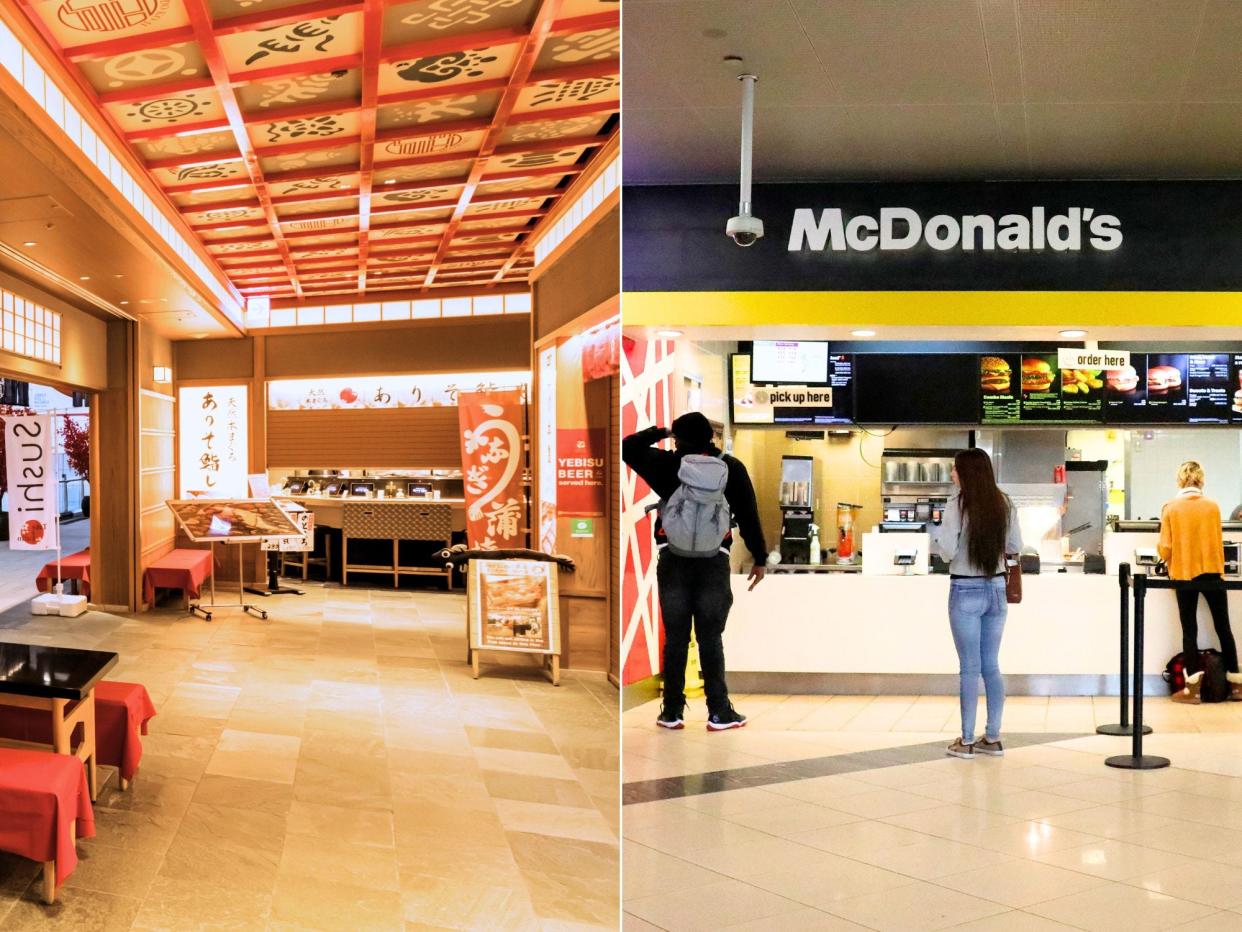
Travel expert Gilbert Ott shared his favorite and least-favorite airports for red-eye flights.
Ott emphasizes the importance of sleeping on the plane, and arriving refreshed.
He highlights the role of restful lounges, healthy food, and transit ease at airports.
Flying through the night can be ideal for those trying to save time while traveling long distances — assuming you can sleep and arrive feeling refreshed, Gilbert Ott told Business Insider.
And he would know — the travel expert who flies 200,000 miles a year on average has had his fair share of red-eye flight experiences.
"People shouldn't hate on red-eyes — I think they can be really cool," he said. "But you don't want to show up haggard."
Ott added that restful lounges, healthy food, and ease of transit can make some airports better for red-eye flights compared to others. He shared with BI his favorite and least favorite airports for nighttime flights.
Los Angeles International Airport is one of the best for red-eyes with a wide variety of healthy eateries, Ott said.
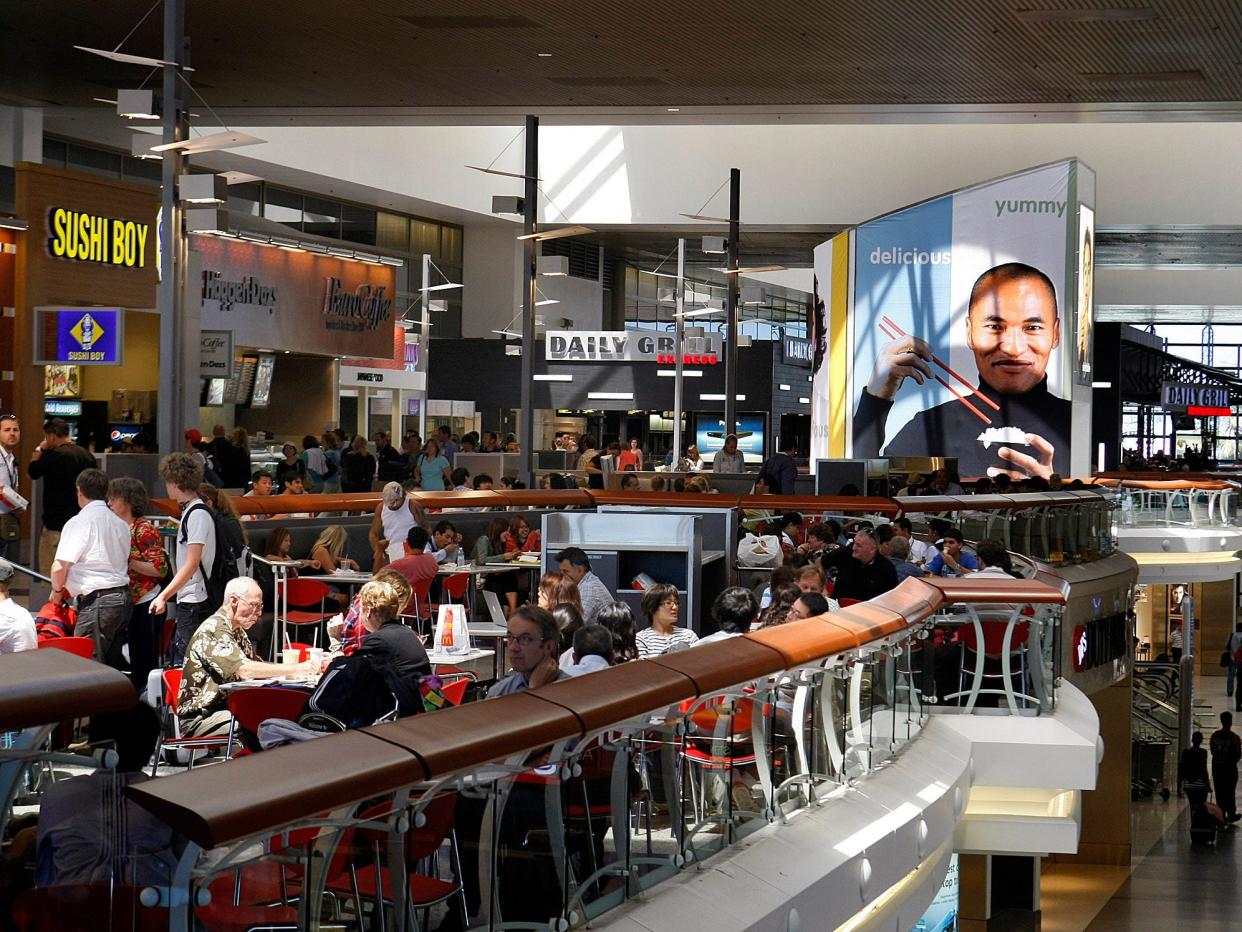
"Most red-eyes involve jet lag because you're usually crossing a time zone, which is the reason for the red-eye," Ott told BI. "I try to eat before I fly on a red-eye because sleeping on the plane is vital. You want to try to get all the Zs you can."
When it comes to departure airports for night flights, Ott appreciates having healthy food options.
"I don't want to eat greasy fast food before I hop on a plane for six hours," he added. "I like a place that has a Chopped, a sushi kiosk, poke bowls, or anything that's a little bit lighter and easier to manage."
For example, Ott said Los Angeles International Airport (LAX) has various healthy eateries, from the lounges to the food courts.
At LAX, travelers will find soups, salads, smoothies, and avocado toast.
"That's a game changer because then you can eat before you fly and get all the rest you need," he said. "And when you get on the plane, it's just about maximizing the rest."
John F. Kennedy International Airport also has quality food options, in Ott's opinion.
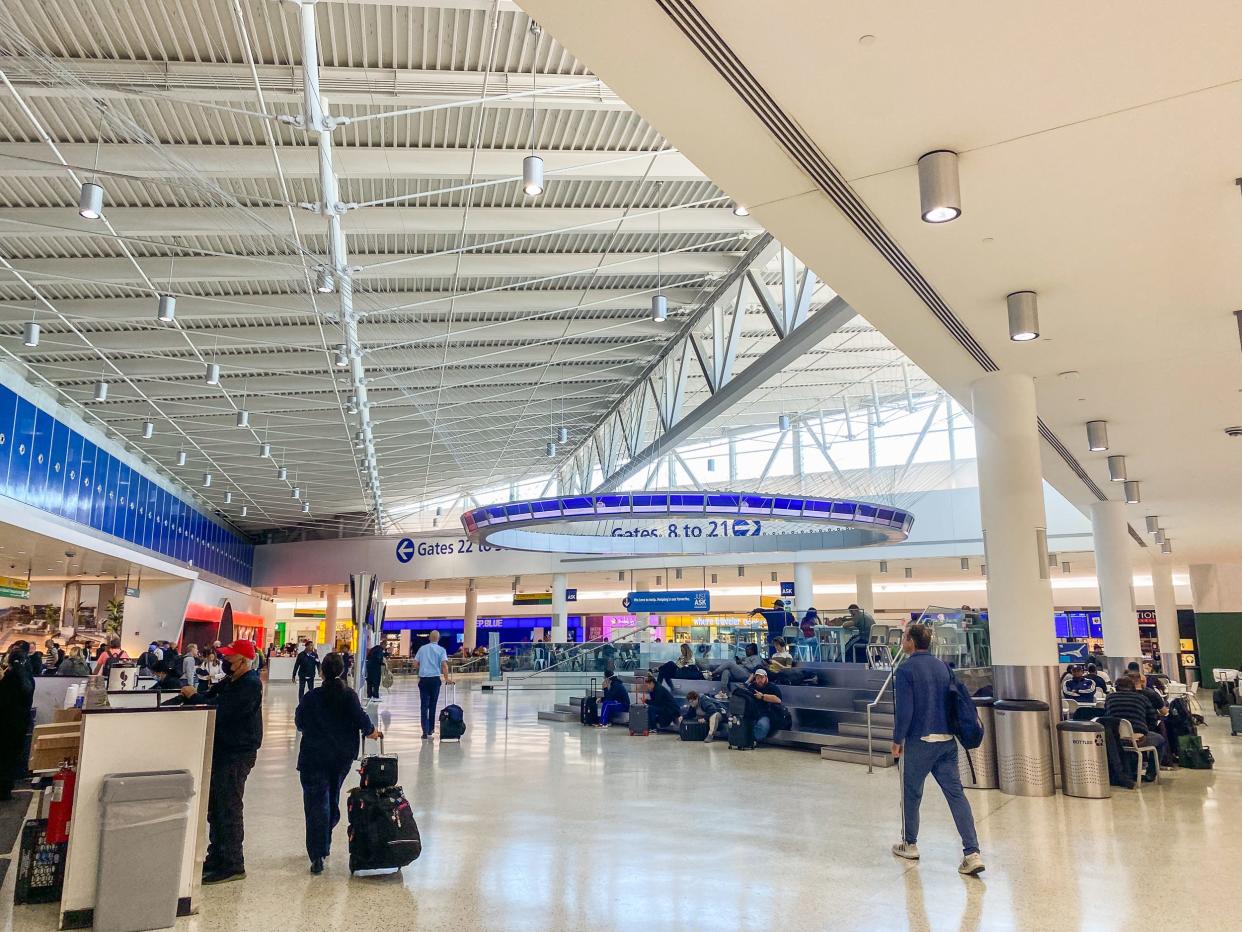
Like LAX, John F. Kennedy International Airport (JFK) has healthy options, Ott noted.
"They've done a good job of courting in a few decent restaurants," he said. "They have lots of lounges and there are lots of ways you can access the lounges."
Ott highlights the Amex Centurion Lounge and the Chase Sapphire Lounge, which has dishes like farm-raised Atlantic salmon over braised leeks for light, healthy options.
"All of these spaces do a better job than fast food," he added.
And there's no better sushi than at Tokyo International Airport, Ott said.
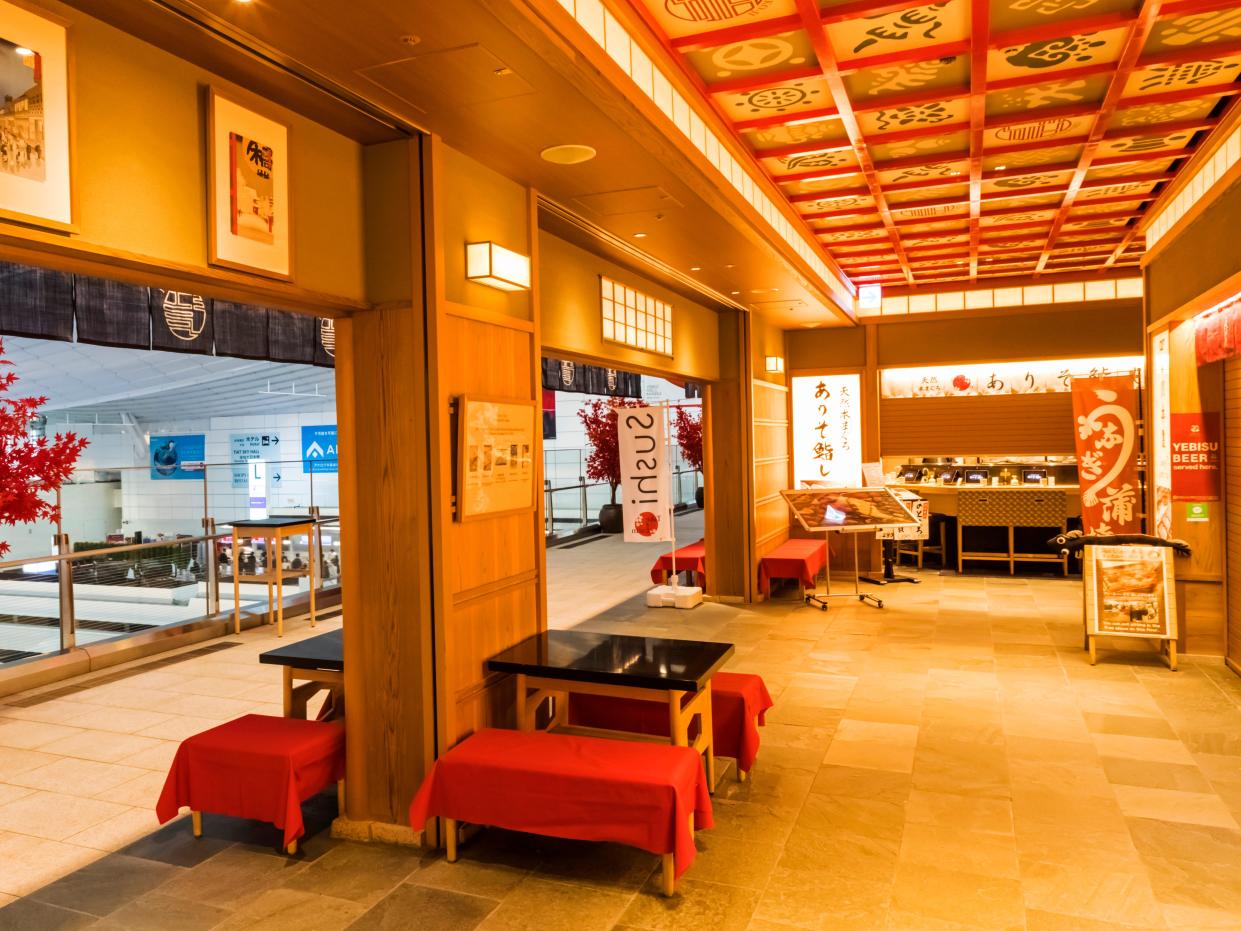
At Tokyo International Airport (Haneda Airport), Ott said he's dined on the best sushi he's ever had.
"You can get it before your flight and carry it on," he said. "I love that."
Singapore Changi Airport is a great option for red-eyes because of the array of food and lounges, in Ott's experience.
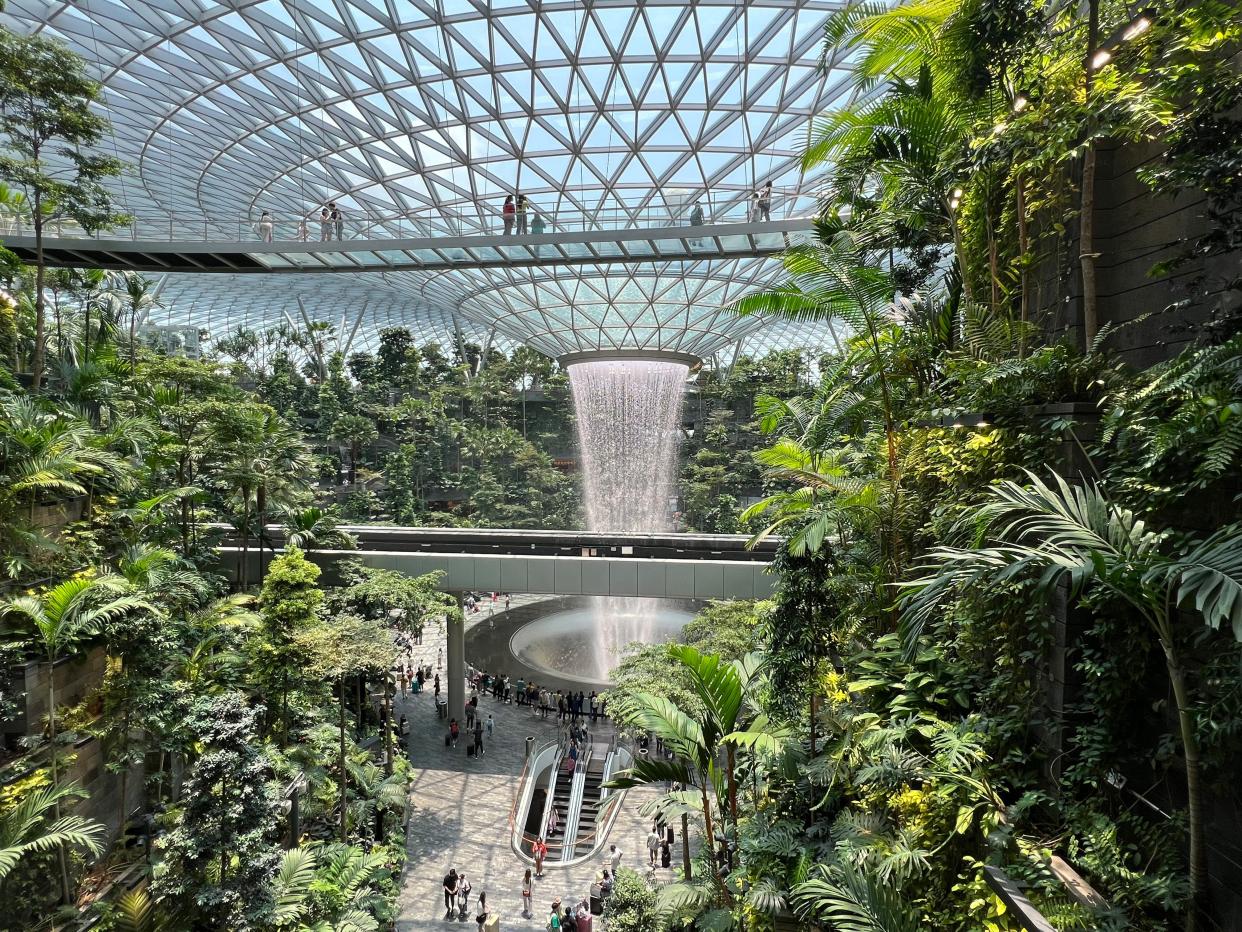
"Singapore Changi Airport is always the leading G.O.A.T. of local food stalls," Ott said. "Some of the best local food is at the airport because famous places in Singapore set up locations there."
Ott added that the airport has impressive lounges with luxury amenities.
To Ott, Paris Charles de Gaulle Airport is another leading airport for local cuisine.
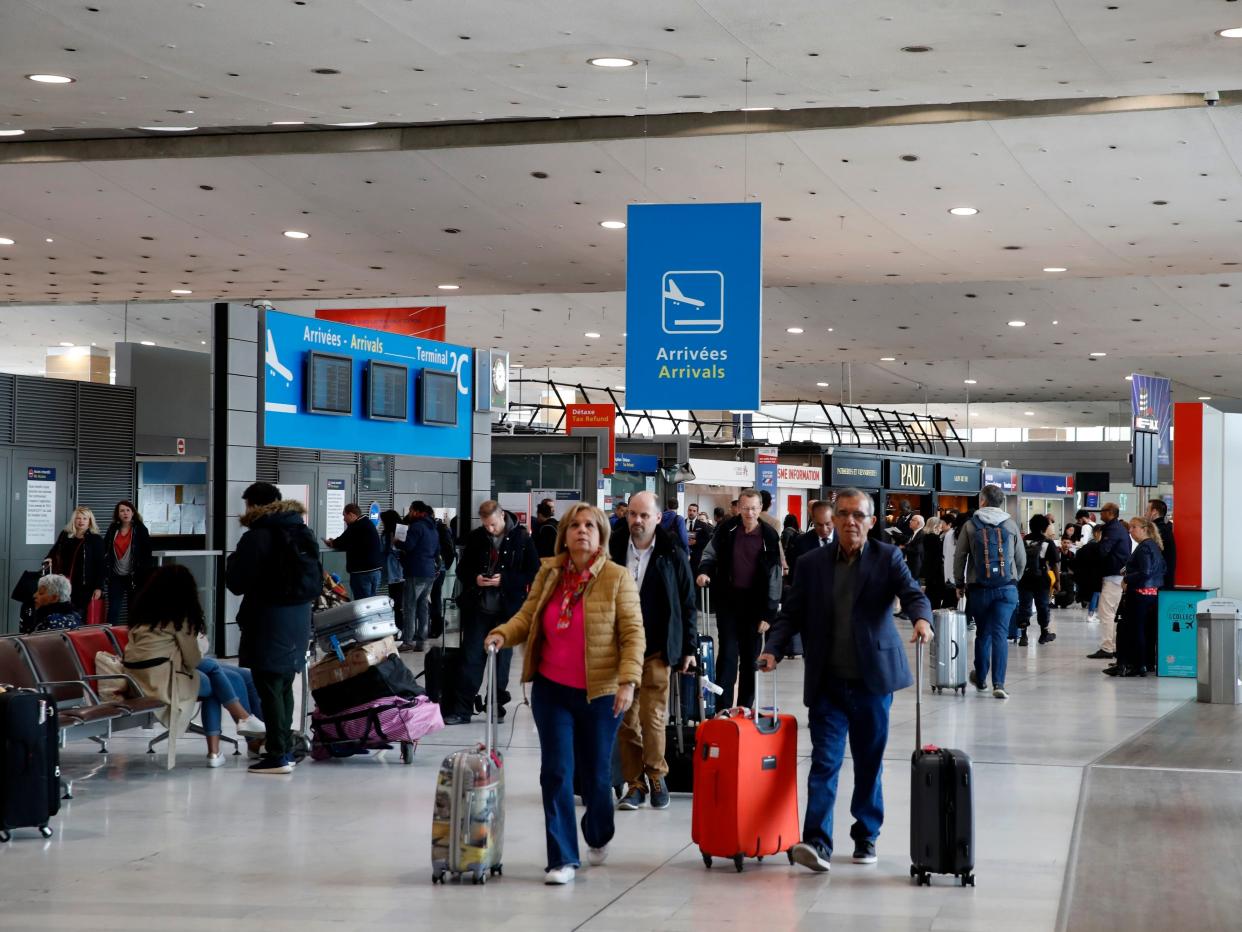
Paris Charles de Gaulle Airport is another airport with a wide selection of local foods, Ott said.
"They've tried to flip the model of having big chains and have hyper-local places that deliver an authentic Parisian experience," Ott told BI.
"Travel can feel very stale. It can feel very boring. So I think when you bring in something that makes people feel like they're in a certain place — that's a really cool thing," he added.
Ott said Stockholm Arlanda Airport is one of the best for red-eye arrivals because it's easy to get to your destination.
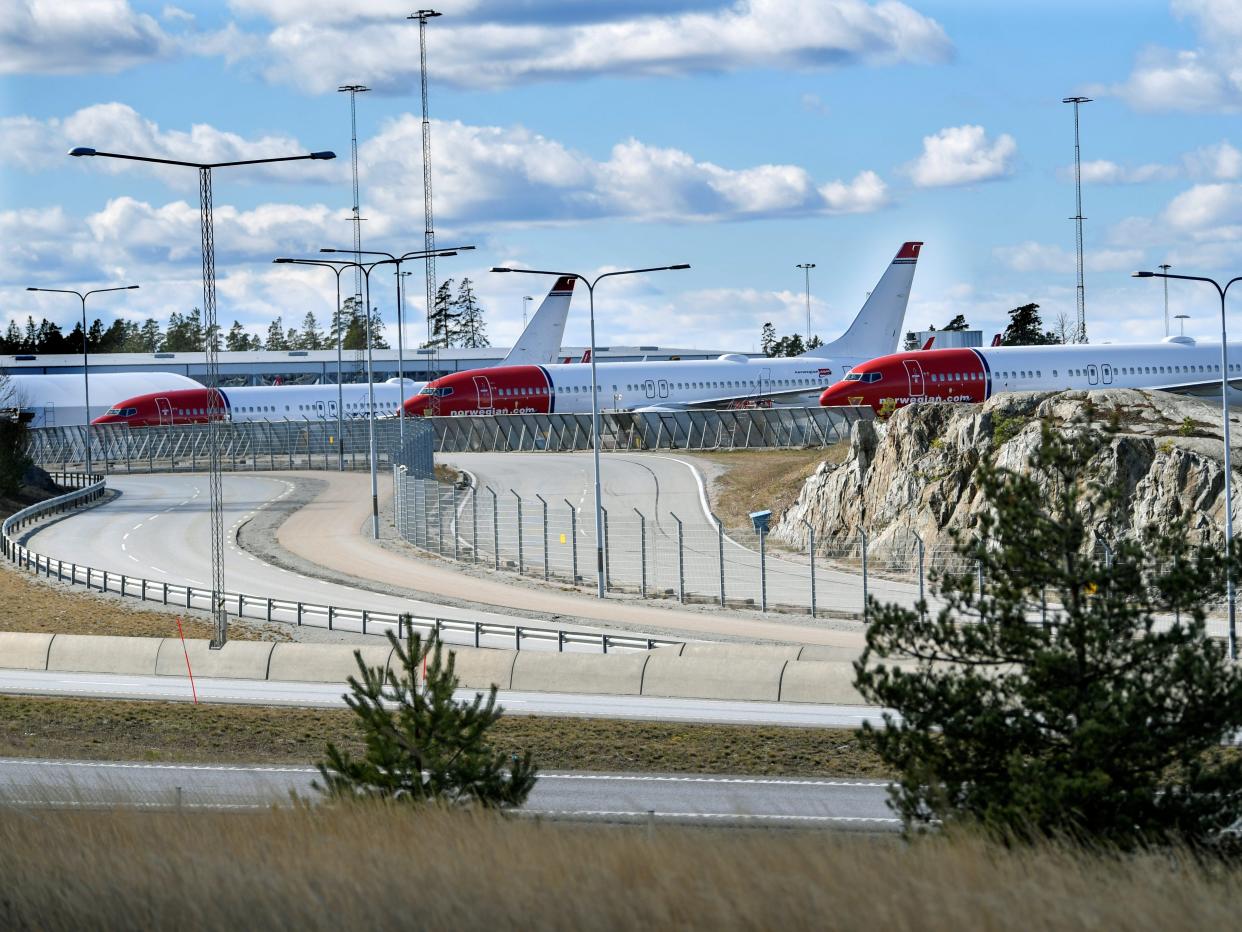
When it comes to red-eye arrivals, centrally located airports with efficient mass transit are ideal, Ott told BI.
"Proximity to the city is the biggest clutch thing for red eyes. I would shout out that Stockholm Arlanda Airport has amazing train links," he said. "They leave all the time, they're reasonably priced, and it takes 20 minutes to get to the center of town."
Conversely, Ott said Hartsfield-Jackson Atlanta International Airport is one of the worst for red-eyes because it serves mostly fast food.
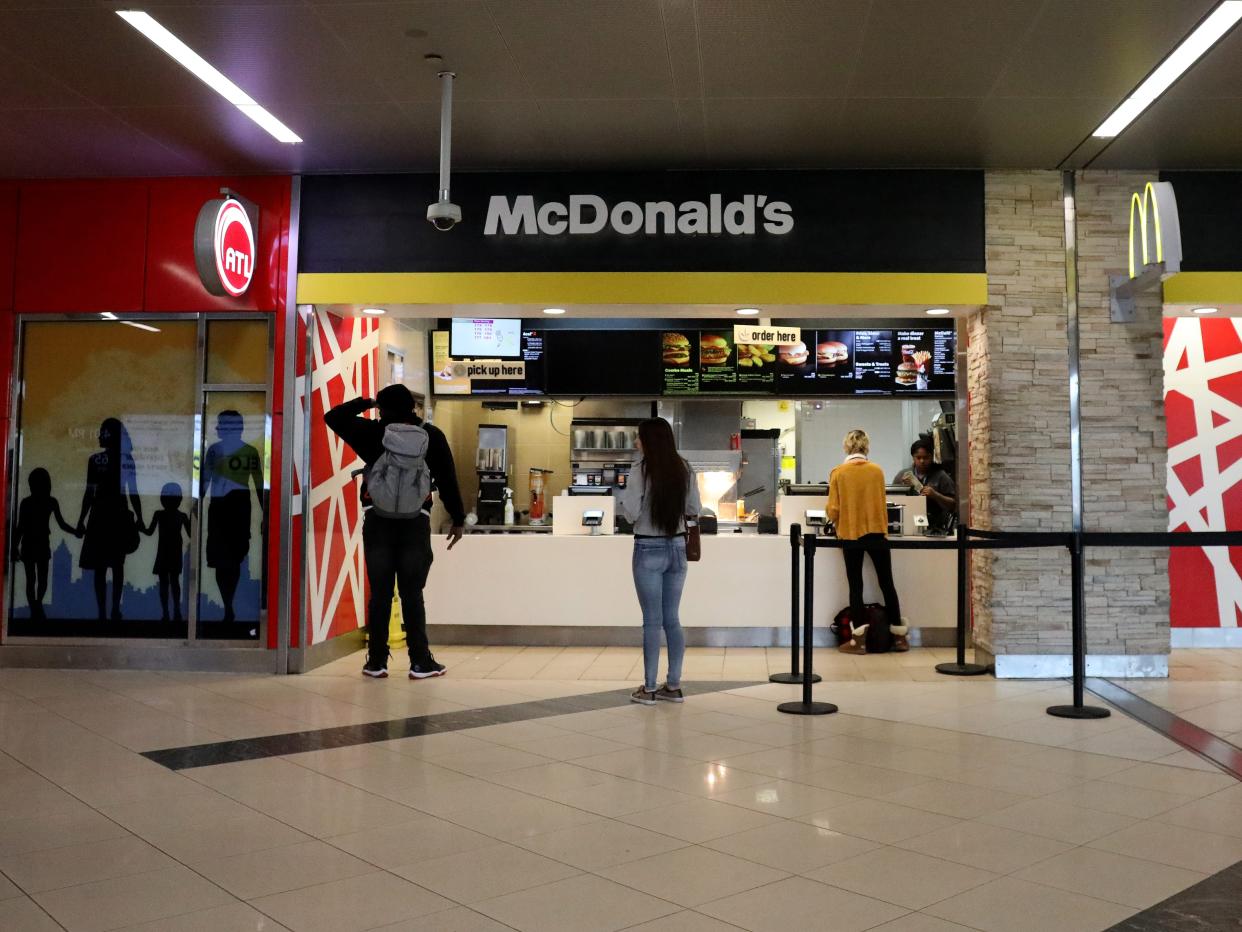
Hartsfield-Jackson Atlanta International Airport is generally a good airport — especially for lounges, Ott said. Still, its restaurants make it less ideal for red-eye departures.
"Atlanta's food options are weak," he said. "It's very fast-food-oriented."
While London Heathrow Airport can be great for some arrival passengers with lounge access, it's one of the worst for departing red-eyes because it's tough to get around.
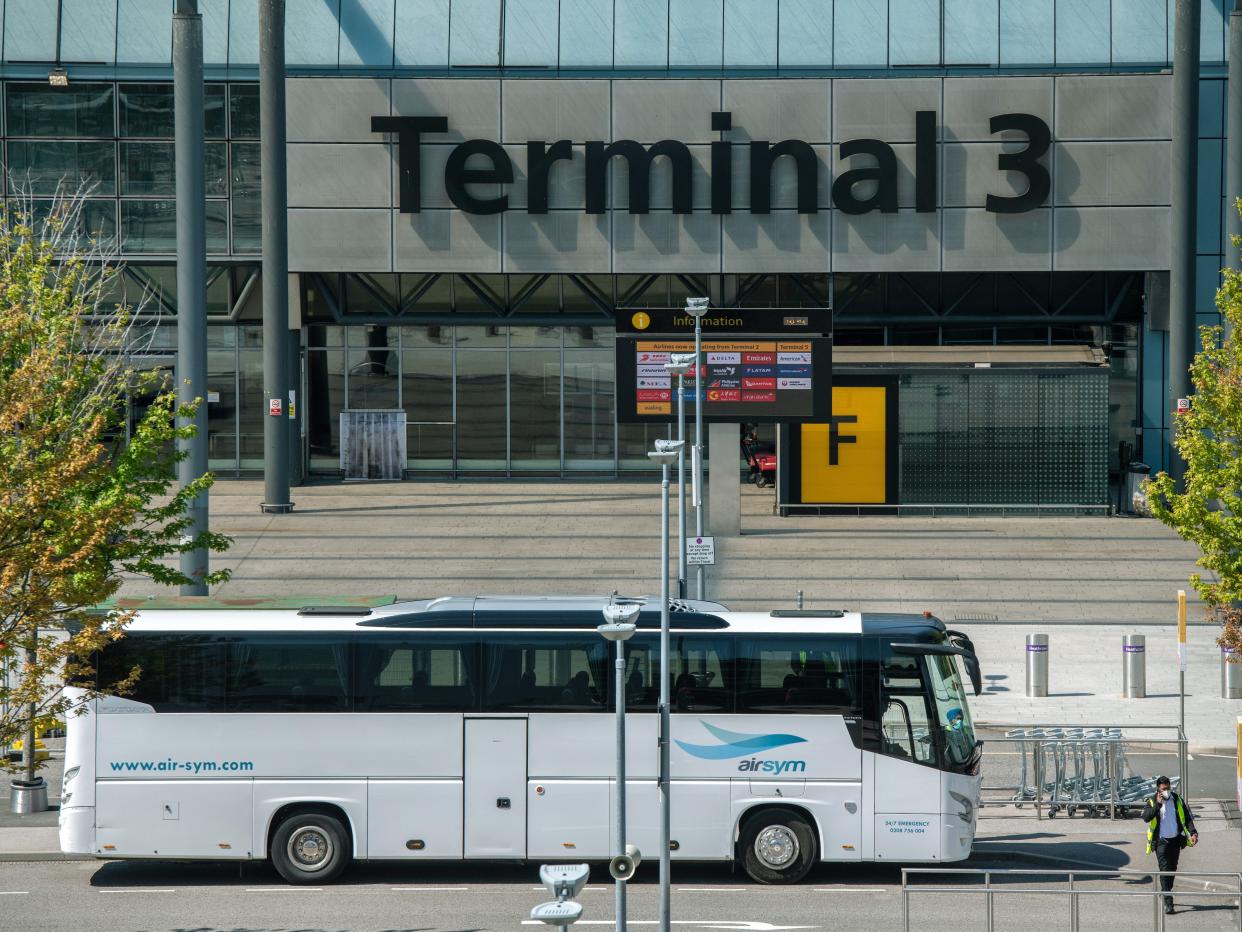
Ott said that Unlike Stockholm, London Heathrow Airport isn't well-connected, making it a drag for red-eye flights.
"I hate Heathrow for departure for red eyes," he said. "There aren't many of them, but it's just a long grinding airport — everything is disjointed."
At the same time, Ott said Heathrow can be great for arrivals if you're a rewards member of Virgin Atlantic or British Airways — which have lounges exclusively for arriving passengers.
"A great red-eye experience occurs when airlines curate it for frequent flyers or business-class travelers, including what they need when they land," he said.
For example, Virgin Atlantic's arrival lounge offers custom breakfasts and shower suites.
"They have the perfect setup for helping you freshen up," he said. "A lot of red-eye customers are flying for work and don't want to show up to work smelling like a sewer without having brushed their teeth."
Ott has found that small regional airports are some of the worst for red-eyes — like Hollywood Burbank.
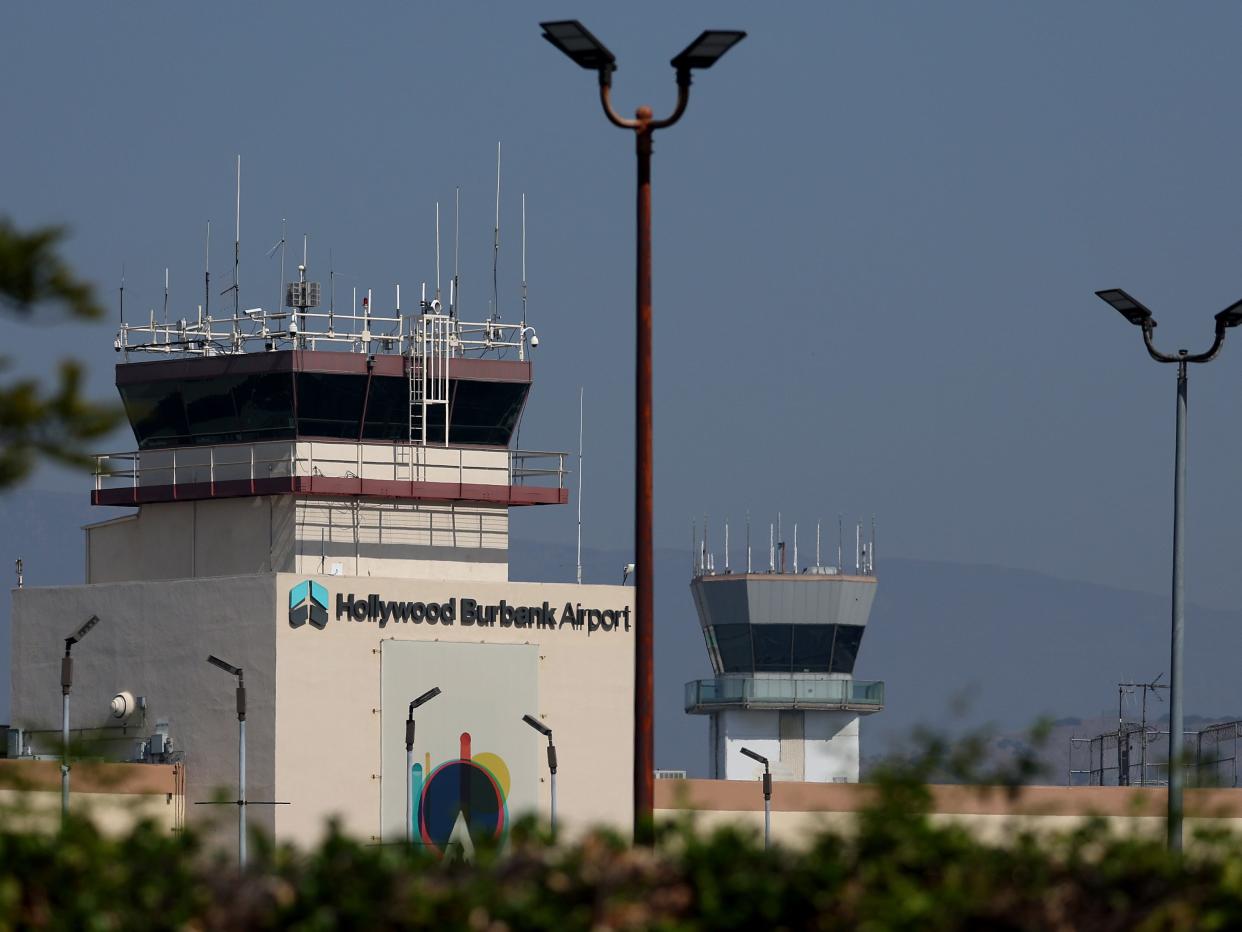
Not many small regional airports have red-eye flights, according to Ott.
"For the most part, red-eyes are more focused on those hub cities where they get people from all the regional airports into their big flying hub and then ship them off from there," he said. "Most red-eyes have a transatlantic or transcontinental demand, with very few exceptions."
He added that one of these exceptions is Hollywood Burbank Airport in California, which has red-eye flights to New York.
Hollywood Burbank has fewer food and lounge options than larger hub airports, which Ott understands because regional airports are smaller.
"I think there's just an inherent advantage to being a big airport because big airports can attract retail," he said.
However, it's worth noting that Hollywood Burbank Airport has one of the shortest walks to the gate in the US.
Check out Ott's best tips for air travel on his blog, God Save the Points.
Read the original article on Business Insider
